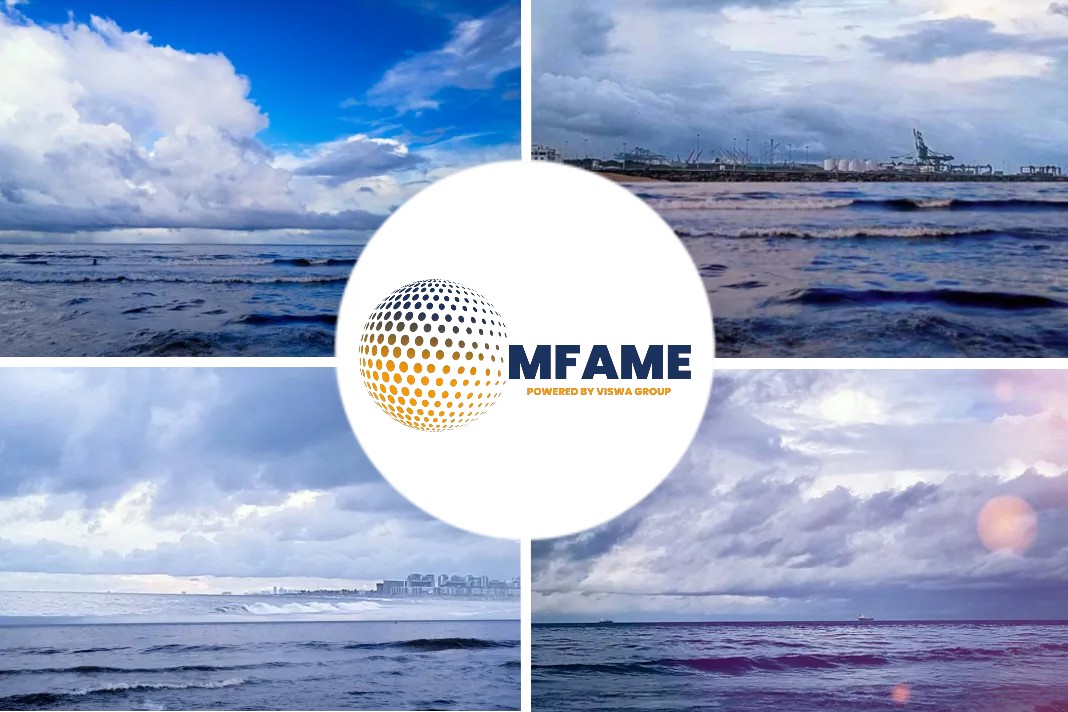- Vincent Clerc, from A.P. Moller – Maersk speaks in an interview on how the company is tackling through difficulties during COVID-19.
- With regard to operational cost, Maersk is encouraging customers and suppliers to minimize port stays and detention of containers as much as possible.
- The company also highlights 9 Tips on how best to mitigate impacts on the supply chain in the future.
- The IMF predicts the economic outlook rebounding 8.4% in 2021.
- Despite volumes in Q2 decreasing across all businesses, possibly by as much as 20-25%, Maersk is hopeful to keep global trade moving.
COVID-19 is putting the global trading system through its most dramatic stress test in 75 years. Maersk is responsible for one in five of all global sea freight and is relied upon for everything from clothes and computers to food and medical supplies, says an article published by Bloomberg.
Speaking from the company’s headquarters in Copenhagen, Denmark—one of the first European countries to return to the office—Vincent Clerc, CEO of Ocean & Logistics, A.P. Moller – Maersk has been a regular presence on Maersk’s own digital channels, providing updates on personnel, government regulations, factory and vendor statuses, carrier schedules, and capacity.
He adds, “Global trade is a community of participants. This is not just us facing a crisis. All of our customers are facing a crisis, as well. This is the moment when they need to be able to rely on their vendors and partners to make sure that they can weather the challenges.”
Additional operational costs incurred
Many companies and their vendors have experienced additional operational costs when moving goods during the pandemic. While many unforeseen costs will be short-term, Maersk warns some might not be immediately obvious.
Ships are sailing, ports are functioning and intermodal transport is underway. However, unplanned disruptions remain a threat, including labor shortages due to quarantine measures that may at times lead to instances of congestion.
Maersk is, therefore, encouraging customers and suppliers to minimize port stays and detention of containers as much as possible in order to minimize the risk of congestion and maintain the flow of goods, as well as the smooth terminal operations of the container fleet.
Planning for future disruptions
The events of 2020 have served as a stark reminder that while today’s global supply chain brings vast benefits, such interconnectivity is not without risk. When we look at the supply chain holistically, disruptions at a national or regional level are no longer isolated events.
Whether we like it or not, there will be another major event in the future. Regardless of whether it’s a natural or man made disaster, preparation is key. The following are the 9 Top Tips from Maersk on how best to mitigate impacts on the supply chain in the future.
- Creating a core team
- Holistic approach
- Supply Chain visibility
- Integrated supply chain
- Multi-sourcing materials
- Transparent strategic supply
- Enforce best practices
- Enacting simulations of Supply Chain disruptions
- Evaluating supply chain relationships
Economy may rebound in 2021
The fallout from the COVID-19 pandemic will probably result in global trade volumes of both goods and services plummeting 11% this year, according to the IMF’s World Economic Outlook released on April 15. That compares with its forecast on Jan. 20 for a 2.9% expansion.
On a hopeful note, the IMF noted that policy makers in many countries have engineered what it calls a “swift and sizable’’ response to the economic crisis. The fund sees the economic outlook rebounding 8.4% in 2021.
The journey ahead
In the future, companies are expected to place more value on building resilience within supply chains, with the aim of becoming agile enough to navigate any unexpected disruptions.
Clerc notes how the closest economic comparison he has experienced during his tenure is the 2008 financial crisis, but even then we didn’t have “entire parts of societies actually come to a halt,” he says.
The question now is how will markets respond? Visibility remains low, however Maersk expects volumes in Q2 to decrease across all businesses, possibly by as much as 20-25%.
Whichever form the recovery takes, Maersk is preparing to navigate it and keep global trade moving:
“The resilience we have been able to show in the first part of the crisis, I think, is a tribute to the quality of the organization, and also builds a lot of confidence in the ability that we will have to continue to meet new challenges, now and in the future,” says Clerc.
In this interview with Vincent Clerc, CEO of Ocean & Logistics, A.P. Moller – Maersk, we find out how the company has responded to the crisis, what decisions were made early on to help navigate the situation as it developed, and hear his advice for those wanting to build more resilience into their supply chains in the future.
Did you subscribe to our daily newsletter?
It’s Free! Click here to Subscribe!
Source: Bloomberg


















